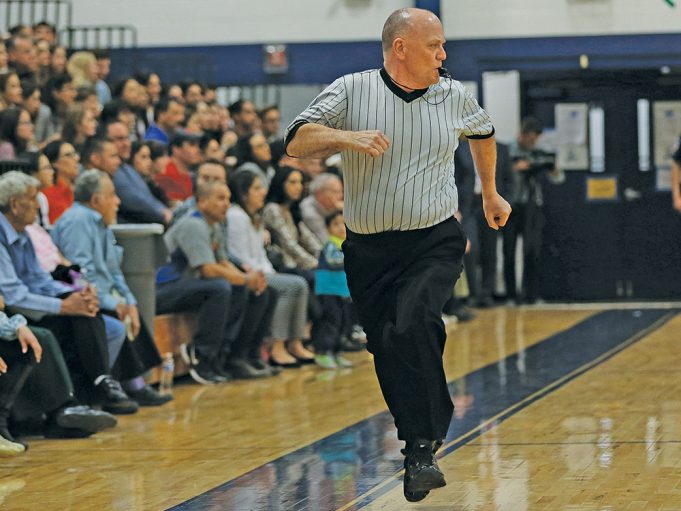It seems no matter how long a person has been officiating, and regardless of the sports he or she works, any official can fall into situations in which his or her judgment or ability is questioned.
Often those situations are a direct result of officiating “errors” that are all too common and can certainly be avoided under most circumstances with just a little bit of preparation. Look at the following errors, see if you are prone to any of them and then check their solutions to help you improve.
Error: Anticipating the play too much.
You’re working your umpteenth game of the year when a seemingly routine play develops. You’ve seen the play dozens of times, so you turn your head or orient your body away from the action for a moment, to get a jump on where you know the ball is going. The trouble is, the ball never arrives, and you have no clue what happened.
Solution:
Never anticipate a play to the degree that you turn your attention away from the action. Especially at lower levels, nothing can be assumed.
Error: Anticipating the call.
The bad cousin of anticipating the play, anticipating the call never seems to work. Thinking, “Oh, the shortstop got to that ball in plenty of time; the batter is a dead duck at first,” will cause you to blow more calls than you can count.
Solution:
Never anticipate the outcome of a play. Let the players determine the outcome of a play, then announce it.
Error: Being out of position.
An observer or a coordinator will forgive an incorrect call if the official was hustling and in position to make the call. But if you’re getting tired and a little lazy, or worse yet, careless, and miss a call, expect to get roasted.
Solution:
Hustle. You’re being paid for a full game — so give it. You’ve heard it a hundred times: The game you’re working is the most important game in the country that day to the participants. Treat it that way by hustling from start to finish, no matter how long it goes.
Error: Letting your concentration wander.
You kicked a call, you fought with your spouse, your mother-in-law is coming over, or who is that gorgeous person in the third row? Next thing you know, you’ve missed a play or a call. Nothing will cause a bad game more often than a simple lack of concentration.
Solution:
Every play, every pitch, every moment, keep your mind on your business. The players and coaches deserve your attention during the contest, so give it to them. If you’re having trouble, get with your partner and ask him or her to “check” on you.
Error: Being hard-headed
There have always been those officials who always seem to have a chip on their shoulders. Nothing they do can be questioned. Any comments are met with a hand so firm you could hammer nails with it. Those officials are tough to work with and tougher to play under.
Solution:
If you are or think you might be one of those, lighten up! True control of a game comes with respect to and from all involved. Respect doesn’t mean being lenient or soft. True respect is earned from being accurate and fair, yet approachable and competent. If you’re having trouble controlling games, work on those things.
Error: Not knowing the rules thoroughly.
There isn’t anything much worse than officials who don’t know the rules the way they should. Credibility and good calls begin and end there.
Solution:
Make rules study a part of your regular routine both in and out of season. Get with some friends and quiz each other or discuss scenarios. Develop the muscle between your ears, and you’ll be able to carry a game with it more often than not.
There are other errors you’ll make, but those are the “killers.” Work on your “game behind the game,” and rediscover why you became an official.
What's Your Call? Leave a Comment:
Note: This article is archival in nature. Rules, interpretations, mechanics, philosophies and other information may or may not be correct for the current year.
This article is the copyright of ©Referee Enterprises, Inc., and may not be republished in whole or in part online, in print or in any capacity without expressed written permission from Referee. The article is made available for educational use by individuals.


















